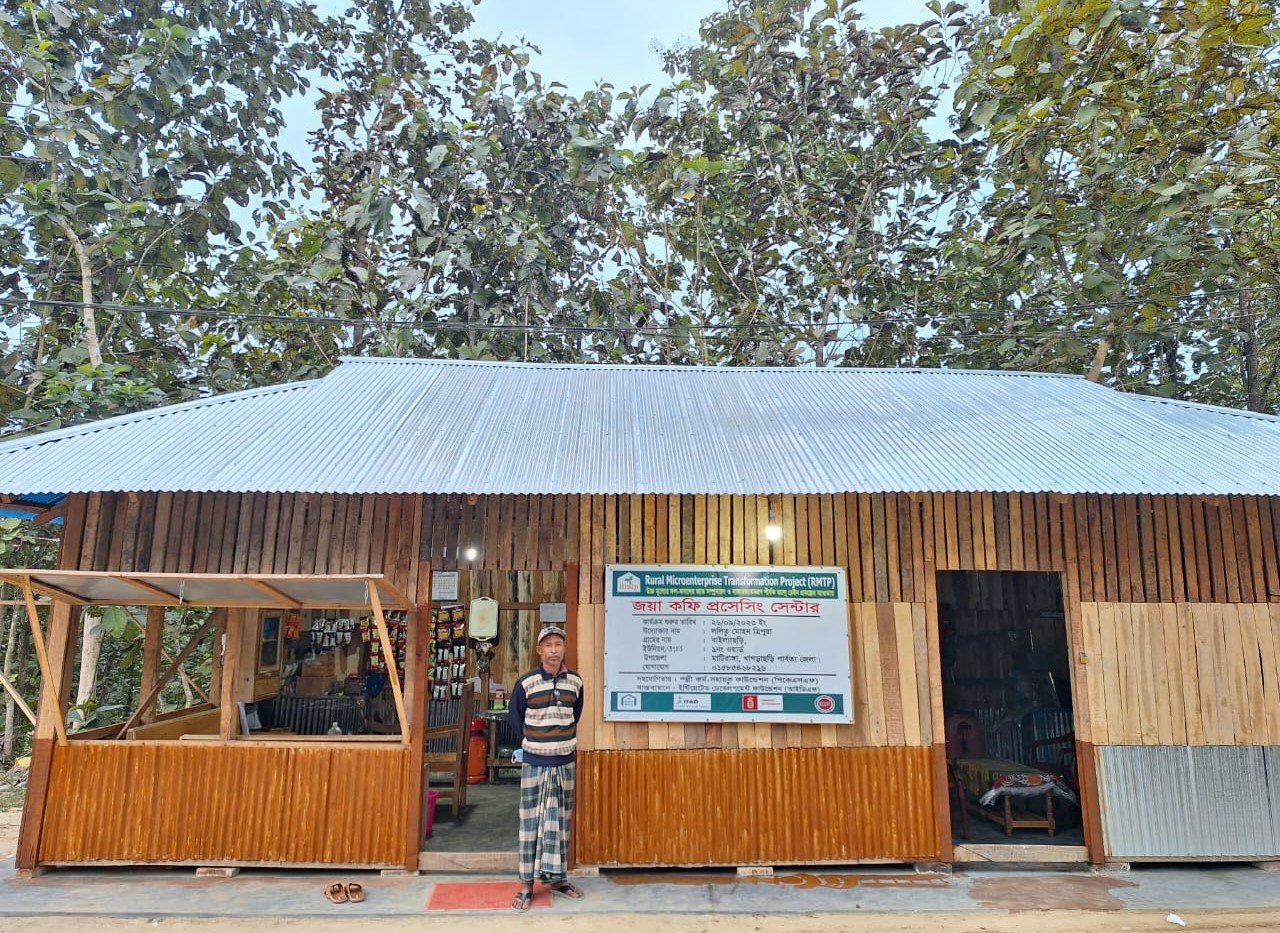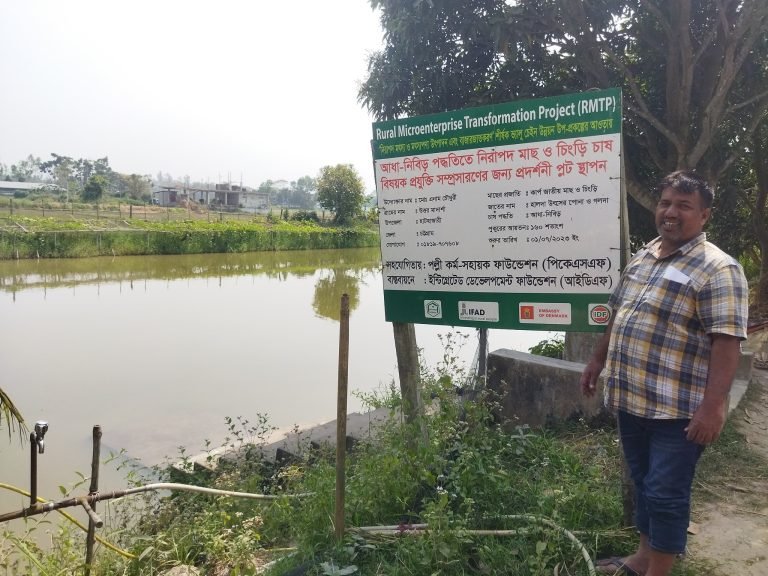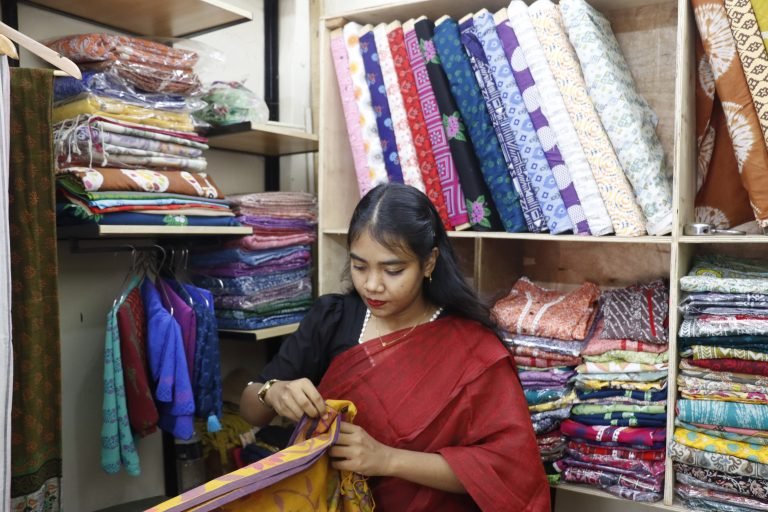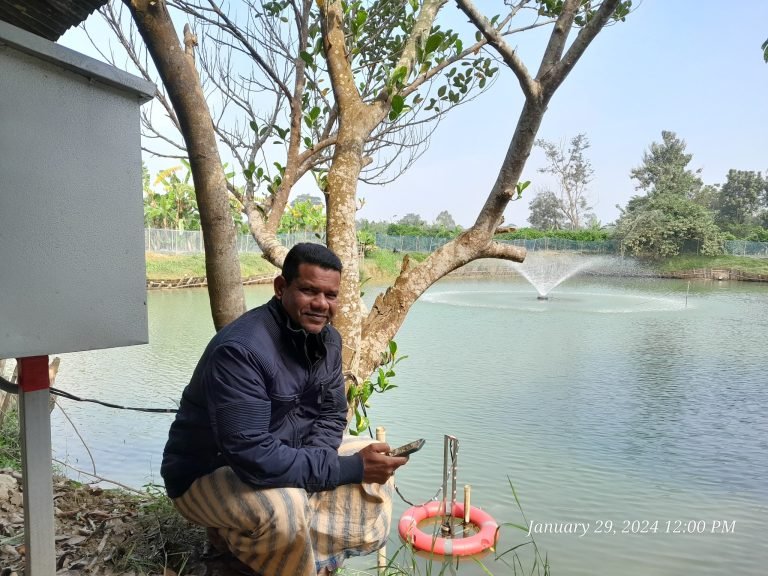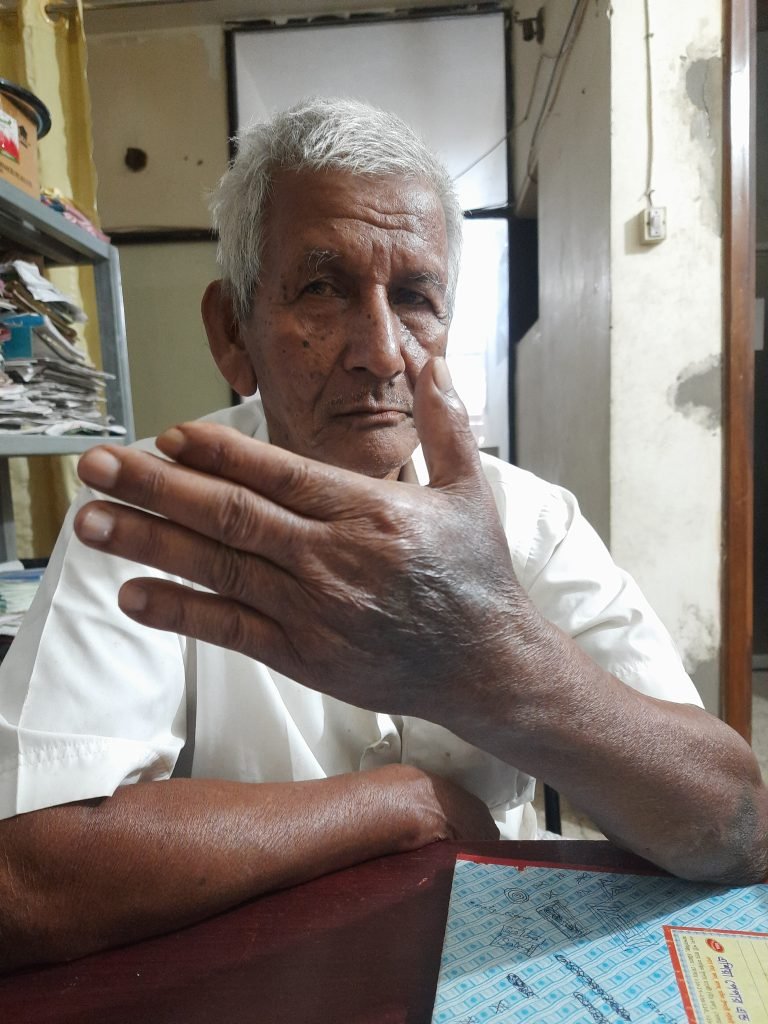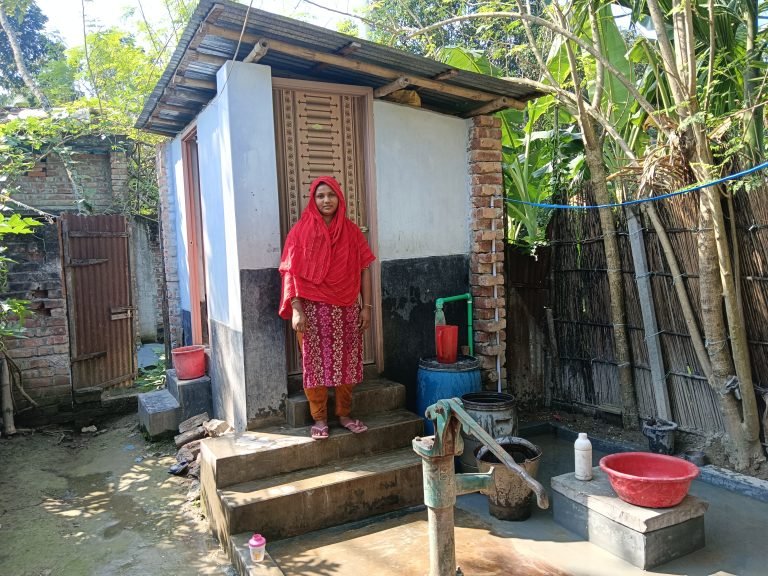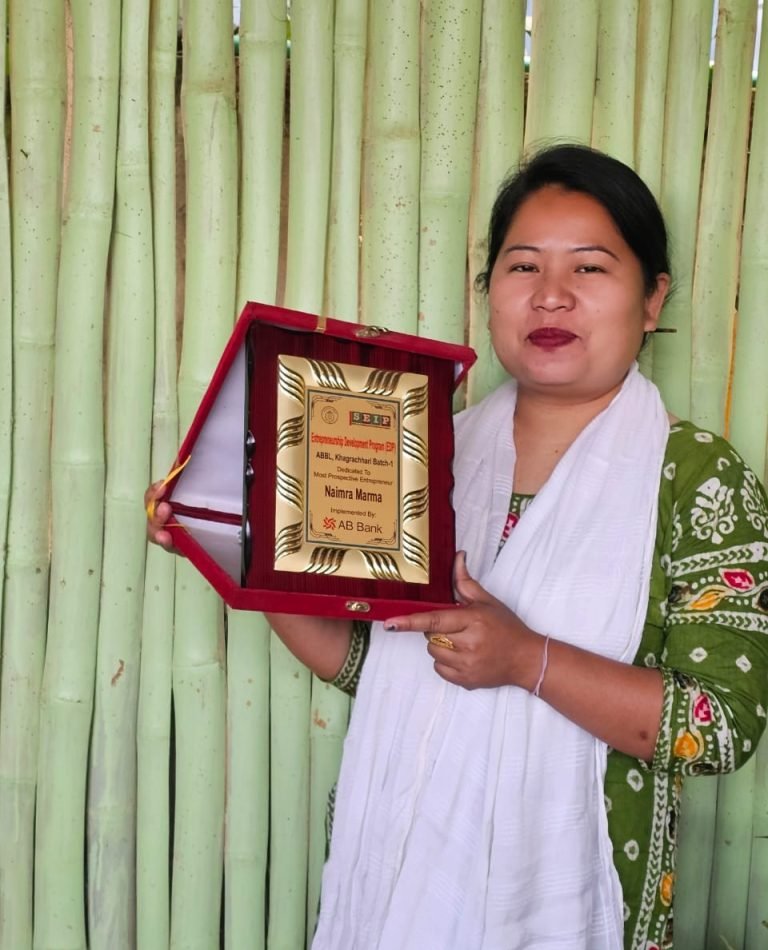The Success Story of Entrepreneur Lalit Mohan Tripura
Lalit Mohan Tripura, a resident of Bailyachari village in Matiranga Upazila of Khagrachari Hill District, is widely recognized as an exemplary figure within the Tripura community. He lives with his wife, three sons, and three daughters, two of whom are married, while the remaining children are pursuing their education. In addition to crafting various wooden furniture pieces, Lalit Mohan is engaged in rubber production from his rubber plantations, providing his family with a stable livelihood.
Lalit Mohan has an enduring passion for acquiring knowledge about new agricultural products and production techniques. He maintains a small orchard where he cultivates indigenous fruit trees, including mango and jackfruit. Driven by his interest in agriculture, he participated in a training session on nutrition, climate, environment, and social issues for farmers under the RMTP – High-Value Fruit Crop Variety Extension and Marketing Project, conducted by IDF. This training broadened his understanding of family nutrition, climate resilience, and social responsibilities, while introducing him to the potential of coffee cultivation in hilly regions.
Under the guidance of the project’s Assistant Value Chain Facilitator and Project Manager, Lalit Mohan learned about coffee production and processing techniques. His interest in coffee cultivation was revived by a personal history—approximately 16-17 years ago, he had received 150 coffee saplings from Wadud Bhuiyan, then Chairman of the Union Parishad. However, due to a lack of knowledge about coffee processing and marketing channels, only 10-12 coffee trees survived, yielding minimal produce. Observing the recurring loss of coffee crops each season motivated him to explore coffee processing seriously.
Coffee, a perennial plant, yields fruit once a year, with the harvest season spanning from December to March. After harvesting, the outer covering of coffee beans is removed, and the beans are sun-dried, allowing them to be stored for extended periods. Recognizing the high domestic demand for coffee and the reliance on imports, Lalit Mohan decided to venture into coffee production and processing. He purchased a pulping machine to remove the outer layer of ripe coffee cherries. The beans are then soaked in water for 24 hours to eliminate the slippery mucilage, washed thoroughly, and sun-dried. After drying, the thin outer coating is removed using a dehulling machine. The green coffee beans are then roasted at high temperatures and ground into powder using a grinding machine. Lalit Mohan produces handmade coffee using this Tripura-grown coffee powder.
The popularity of his handmade coffee grew rapidly, attracting customers from neighboring upazilas. Currently, he sells between 50 to 100 cups of coffee daily at 30 BDT per cup. On average, he sells 75 cups per day, generating a daily income of 2,250 BDT and a monthly income of approximately 67,500 BDT. With an average cost of 17 BDT per cup, his net profit stands at around 13 BDT per cup, yielding a daily profit of 975 BDT and a monthly profit close to 30,000 BDT. He has reinvested part of this income to improve his coffee shop, including paving the shop floor. Those who once doubted his venture now frequent his shop to enjoy his coffee. Inspired by his success, local agricultural entrepreneurs have also shown interest in coffee cultivation and processing. Today, Lalit Mohan Tripura is celebrated as a successful entrepreneur and a role model within his community.
Lalit Mohan’s entrepreneurial journey advanced further when he joined the Promotion of Agricultural Commercialization and Enterprise (PACE) project, jointly funded by the International Fund for Agricultural Development (IFAD) and the Palli Karma-Sahayak Foundation (PKSF). Under this initiative, he received support from IDF to purchase packaging machines and participated in training sessions on online business operations. These trainings equipped him with skills in managing online orders, product delivery, digital marketing, and utilizing social media platforms like Facebook to boost sales. This support significantly contributed to the growth of his business.
Optimistic about his business prospects, Lalit Mohan envisions expanding his enterprise by establishing a full-scale coffee processing factory. His primary goal extends beyond producing and selling coffee; he aspires to deliver high-quality, processed, and well-packaged coffee to the broader market. Currently, he is in the process of obtaining certification from the Bangladesh Standards and Testing Institution (BSTI), aiming to establish his coffee as a recognized national brand.
To support his expansion plans, Lalit Mohan leased land in the Bailyachari School Para area, where he set up his coffee factory. Despite facing initial skepticism and ridicule from the community, he remained undeterred, driven by his belief in the importance of innovation and entrepreneurship. He once remarked, “One must take the initiative to do something new.” His perseverance paid off as he participated in additional training sessions organized by Khagrachari Agricultural Research for coffee production, processing, and preparation under the RMTP of PKSF, implemented by IDF. These sessions connected him with fellow entrepreneurs and coffee producers, opening new opportunities for sourcing raw materials.
Combining grants from the RMTP project with his personal investments, Lalit Mohan established processing facilities, procured coffee beans from local farmers, and produced high-quality coffee powder. To further promote his brand, he launched the “Jaya Coffee Processing Center,” a dedicated coffee stall offering handcrafted coffee alongside his processing operations. Today, Lalit Mohan Tripura stands as a testament to the transformative power of entrepreneurship, determination, and continuous learning.

